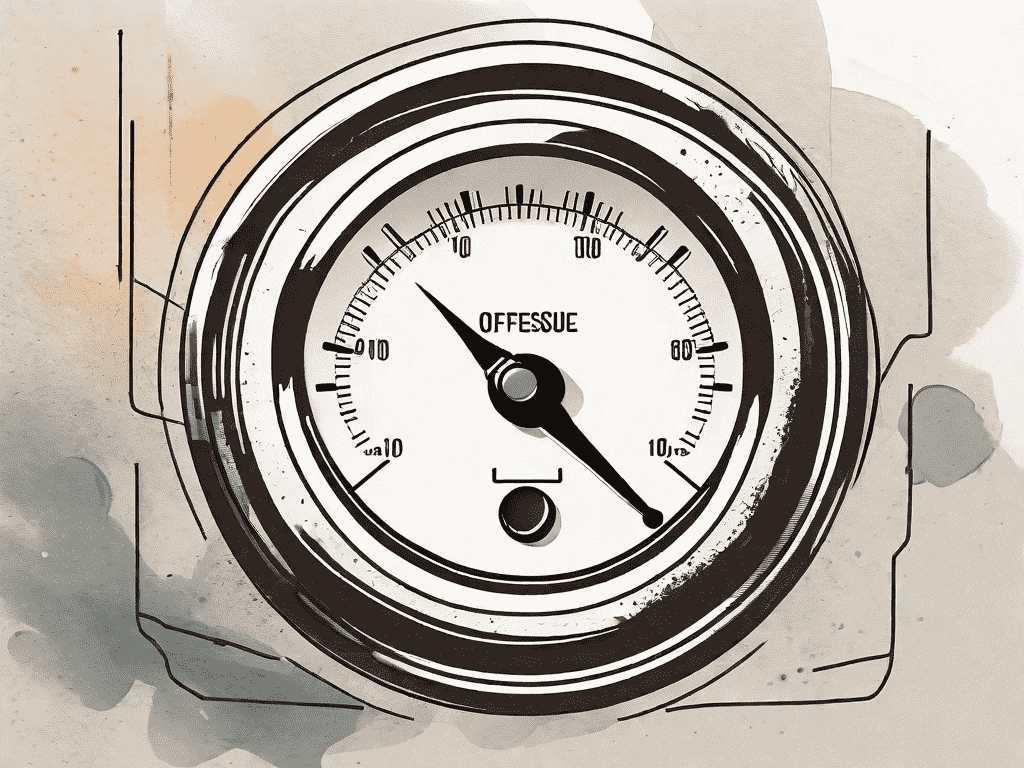
Employee Motivation: Key Drivers for Enhanced Productivity
In today’s competitive business landscape, employee motivation is essential for driving productivity and ensuring the success of an organization. When employees are motivated, they are more likely to go above and beyond their duties, demonstrate high levels of commitment, and contribute to the overall growth and prosperity of the company. Understanding what motivates employees and implementing strategies to enhance motivation can significantly boost productivity and create a positive work environment.
Understanding Employee Motivation
Employee motivation is a complex psychological concept that involves a combination of internal and external factors. It is crucial for employers to delve into the psychology behind motivation to create effective strategies that can inspire and engage employees. By understanding what drives individuals, employers can develop customized approaches that cater to the diverse needs of their workforce.
One important aspect of employee motivation is the role of intrinsic and extrinsic motivators. Intrinsic motivation refers to internal rewards such as a sense of accomplishment, personal growth, and autonomy. When employees feel a sense of fulfillment and personal satisfaction from their work, they are more likely to be motivated to perform at their best. This can be fostered by providing opportunities for skill development, allowing employees to take on challenging tasks, and recognizing their achievements.
On the other hand, extrinsic motivation relates to external rewards like recognition, promotions, and financial incentives. These external factors can also play a significant role in motivating employees. Recognizing and rewarding employees for their hard work and achievements can boost their morale and motivation. This can be done through various means such as performance-based bonuses, employee of the month programs, or public recognition in team meetings or company-wide events.
The Psychology Behind Motivation
Human motivation is influenced by various factors, including intrinsic and extrinsic motivators. Intrinsic motivation refers to internal rewards such as a sense of accomplishment, personal growth, and autonomy. Experiencing a sense of fulfillment and personal satisfaction from their work can drive employees to perform at their best. This can be fostered by providing opportunities for skill development, allowing employees to take on challenging tasks, and recognizing their achievements.
Extrinsic motivation, on the other hand, relates to external rewards like recognition, promotions, and financial incentives. These external factors can also play a significant role in motivating employees. Recognizing and rewarding employees for their hard work and achievements can boost their morale and motivation. This can be done through various means such as performance-based bonuses, employee of the month programs, or public recognition in team meetings or company-wide events.
Understanding the psychology behind motivation is essential for employers to create a work environment that fosters employee engagement and satisfaction. By tapping into both intrinsic and extrinsic motivators, employers can develop strategies that cater to the diverse needs of their workforce. This can lead to higher levels of productivity, increased job satisfaction, and reduced turnover rates.
Importance of Employee Motivation in the Workplace
Employee motivation is directly linked to performance, satisfaction, and retention. When employees are motivated, they are more likely to be engaged and committed to their work, resulting in higher levels of productivity. Motivated employees tend to go above and beyond their job responsibilities, seeking opportunities for growth and improvement.
Furthermore, motivated employees are more likely to stay with the company, reducing turnover and recruitment costs. When employees feel valued and motivated, they are less likely to seek employment elsewhere. This not only saves the company time and resources spent on recruiting and training new employees but also helps maintain a stable and experienced workforce.
Employee motivation also plays a crucial role in fostering a positive work culture. When employees are motivated, they are more likely to collaborate, share ideas, and support each other. This can lead to a more harmonious and productive work environment, where creativity and innovation thrive.
In conclusion, understanding employee motivation is essential for employers to create a work environment that fosters engagement, satisfaction, and productivity. By recognizing and addressing both intrinsic and extrinsic motivators, employers can develop strategies that cater to the diverse needs of their workforce. This can lead to higher levels of employee performance, job satisfaction, and retention, ultimately benefiting the overall success of the organization.
Key Drivers of Employee Motivation
Several key drivers contribute to employee motivation and significantly impact their level of engagement and productivity. By recognizing and addressing these drivers, employers can create a motivating work environment that fosters optimal performance.
Employee motivation is a complex concept that is influenced by various factors. Let’s explore some additional drivers that can further enhance employee motivation and contribute to their overall job satisfaction.
Recognition and Rewards
One of the most effective ways to motivate employees is through recognition and rewards. Acknowledging and appreciating employees’ efforts and achievements increases their motivation and reinforces positive behaviors. Implementing a comprehensive reward system for employees, such as employee of the month programs, performance-based bonuses, or incentive trips, can provide employees with the recognition they seek.
Moreover, personalized recognition can have a significant impact on employee motivation. Taking the time to understand individual preferences and tailoring rewards accordingly can make employees feel valued and appreciated.
Career Growth Opportunities
Offering career growth and development opportunities is crucial for motivating employees. Employees want to know that there are avenues for advancement within the company and that their hard work will be rewarded with career progression. By providing training programs, mentorship opportunities, and clear paths for advancement, organizations can fuel employee motivation and promote a culture of continuous learning.
Furthermore, organizations can encourage employees to set personal development goals and provide the necessary resources and support to achieve them. This not only enhances employee motivation but also contributes to their long-term career satisfaction.
Positive Work Environment
A positive work environment plays a vital role in motivating employees. When employees feel valued, supported, and respected, they are more likely to be motivated and engaged in their work. Employers can create a positive work environment by fostering open communication, promoting teamwork, and encouraging work-life balance.
In addition, organizations can invest in creating a physically appealing workspace that promotes creativity and collaboration. Incorporating elements such as comfortable seating, natural lighting, and greenery can contribute to a positive atmosphere that enhances employee motivation.
Work-Life Balance
Maintaining a healthy work-life balance is essential for employee motivation. When employees feel overwhelmed or burnt out due to excessive work demands, their motivation and productivity can suffer. Employers can support work-life balance by offering flexible work arrangements, promoting breaks and vacations, and encouraging employees to prioritize self-care.
Furthermore, organizations can implement policies that discourage after-hours work and ensure that employees have the necessary resources and support to manage their workload effectively. By promoting work-life balance, employers can contribute to higher levels of employee motivation and overall well-being.
In conclusion, recognizing and addressing the key drivers of employee motivation is crucial for creating a motivating work environment. By implementing strategies that focus on recognition and rewards, career growth opportunities, positive work environment, and work-life balance, employers can enhance employee motivation and foster a culture of high performance and job satisfaction.
The Link Between Motivation and Productivity
There is a strong correlation between employee motivation and productivity. Motivated employees are more likely to exert effort, demonstrate creativity, and strive for excellence in their work. They have a sense of purpose and are committed to achieving organizational goals. In contrast, demotivated employees may become disengaged, leading to decreased productivity and overall performance.
Employee motivation plays a crucial role in the success of any organization. When employees are motivated, they bring their best selves to work, which positively impacts their productivity and the overall performance of the company. Motivation not only influences individual employee performance but also contributes to the collective success of the team and the organization as a whole.
How Motivation Influences Productivity
When employees are motivated, they are more likely to overcome obstacles, take initiative, and generate innovative ideas. Motivation energizes individuals and enhances their focus and dedication towards their tasks, resulting in increased productivity levels. Motivated employees are also more inclined to collaborate with others, contributing to a positive team dynamic and facilitating overall productivity.
Imagine a team of motivated individuals working together towards a common goal. Each team member is driven by their own sense of purpose and passion, which fuels their desire to excel. They are constantly seeking ways to improve their skills and knowledge, pushing the boundaries of what they can achieve. This collective motivation creates a positive work environment where ideas flow freely, collaboration thrives, and productivity soars.
The Role of Motivation in Employee Performance
Motivation is a key determinant of individual employee performance. A motivated employee is likely to be more engaged, proactive, and committed to achieving targets and goals. Moreover, motivated employees tend to consistently seek ways to improve their skills and knowledge, leading to continuous growth and increased performance over time.
Organizations that prioritize employee motivation understand the importance of creating an environment that fosters motivation. They provide opportunities for employees to develop their skills, recognize and reward their achievements, and promote a healthy work-life balance. By investing in employee motivation, these organizations not only enhance individual performance but also create a culture of excellence and success.
Furthermore, motivation goes beyond just achieving targets and goals. It also influences employee satisfaction and well-being. When employees are motivated, they experience a sense of fulfillment and accomplishment, which contributes to their overall happiness and job satisfaction. This, in turn, leads to higher retention rates and a positive workplace culture.
In conclusion, the link between motivation and productivity is undeniable. Motivated employees are more likely to go above and beyond, bringing their best selves to work and contributing to the success of the organization. By understanding the importance of motivation and implementing strategies to foster it, organizations can create a thriving work environment where productivity flourishes and employees thrive.
Strategies to Enhance Employee Motivation
Implementing effective strategies to enhance employee motivation is crucial for organizations seeking to maximize productivity and foster a positive work culture. By adopting the following approaches, employers can create a motivating environment that empowers employees and drives their success.
Implementing Effective Reward Systems
A robust reward system can significantly contribute to employee motivation. Employers should design reward programs that align with employees’ preferences and performance expectations. These can include bonuses, promotions, certificates of recognition, or additional benefits tailored to each employee’s unique needs and aspirations.
Promoting a Positive Company Culture
An organization’s culture plays a vital role in employee motivation. By fostering a culture of transparency, trust, and collaboration, employers can create an empowering environment where employees feel valued and motivated. Encouraging open communication, recognizing and celebrating achievements, and promoting a supportive and inclusive atmosphere can enhance motivation levels.
Encouraging Employee Development
Investing in employee development not only enriches their skills but also boosts motivation. Employers should provide opportunities for learning and growth, such as training programs, workshops, and mentoring initiatives. By supporting employees’ professional aspirations, organizations can increase motivation and build a pipeline of talented individuals.
In conclusion, employee motivation is a critical driver of enhanced productivity. By understanding the psychology behind motivation and the factors that influence it, employers can design motivating strategies and create a positive work environment. Recognizing the importance of key drivers such as recognition, career growth, positive work environment, and work-life balance is essential for fostering employee motivation. Motivated employees are more likely to perform at their best, contributing to the overall success and growth of the organization.


